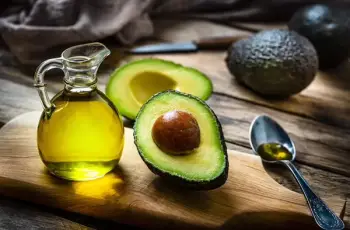
How To Restore Collagen in the Face: The Complete Science-Backed Guide
Collagen makes up about 75% of your skin’s dry weight, acting as the structural support that keeps your face smooth, firm, and youthful-looking.
Over time, collagen production slows, leading to fine lines, wrinkles, thinning skin, and loss of firmness—especially on the face, neck, and jawline.
Restoring collagen isn’t about applying collagen creams or just popping supplements—true rejuvenation requires understanding how collagen is made and how to stimulate it at the cellular level.
This comprehensive guide breaks down the key processes, ingredients, and techniques that help boost natural collagen production in the skin, from nutrition to advanced treatments.
Understanding How Skin Makes Collagen
Collagen is made by fibroblast cells in the dermis, the middle layer of your skin, where it’s secreted into the extracellular matrix (ECM) to form the skin’s structure and density.
It starts as a precursor molecule called procollagen, which must be modified by enzymes to become functional collagen fibers.
Amino acids like proline and lysine must be converted into hydroxyproline and hydroxylysine by enzymes that rely on iron, vitamin C, and alpha-ketoglutarate.
Without these conversions, the collagen structure won’t form properly, and the skin loses elasticity, firmness, and volume over time.
Why Vitamin C Is Essential for Collagen Production
Vitamin C is crucial because it enables the enzymatic conversion of proline into hydroxyproline and lysine into hydroxylysine, key steps in collagen synthesis.
Without vitamin C, collagen simply cannot be produced—even if all other ingredients and nutrients are present in your diet or skincare routine.
Scientific studies show that adding vitamin C to fibroblast cultures significantly boosts collagen output, proving its essential role in skin rejuvenation.
Topical vitamin C serums, oral supplements, and a diet rich in vitamin C from fruits and vegetables can all support collagen regeneration.
Why Collagen Creams Don’t Work
Many people think applying collagen-infused creams helps build collagen in the skin—but this is a myth, as collagen molecules are too large to penetrate the skin barrier.
Instead, use serums and creams with active ingredients that signal the skin to produce more collagen naturally, like vitamin C, retinoids, peptides, and exosomes.
Best Topical Ingredients to Restore Collagen
Vitamin C: A foundational ingredient needed for collagen synthesis and skin brightening.
Retinoids: Proven to increase collagen, reduce wrinkles, and improve skin texture over time.
Peptides: Specific peptides can signal fibroblasts to build more collagen and elastin.
Growth Factors: Especially TGF-\u03b2, PDGF, and FGF stimulate fibroblasts and promote collagen regeneration.
Hydroxy Acids: AHAs like glycolic acid exfoliate and increase collagen synthesis while improving product penetration.
Exosomes: Especially platelet-derived exosomes, these carry growth factors and signals that promote healing and collagen production.
Exosomes: Next-Gen Collagen Boosters
Exosomes are cellular messengers that deliver information between cells, and when derived from human platelets, they contain growth factors proven to stimulate collagen production.
Platelet-derived exosomes can activate fibroblasts and stem cells, promoting new collagen formation, blood vessel growth, and skin regeneration.
One notable product line is Plated Skin Science, which uses human platelet-derived exosomes in serums to restore collagen and repair aging skin.
Hydroxy Acids and Collagen Stimulation
AHAs like glycolic acid have clinical backing for their collagen-regenerating effects, especially when paired with vitamin C.
Use hydroxyacid cleansers before applying serums to exfoliate dead skin and allow better absorption of vitamin C and peptides.
Hydroxyacid creams can be applied after serums and used progressively, starting with low strength and increasing over time to rebuild collagen on the face and body.
Retinoids: A Cornerstone of Collagen Renewal
Retinoids, including retinol and prescription-grade tretinoin, increase skin cell turnover and stimulate fibroblasts to produce more collagen.
These are the most studied anti-aging ingredients with proven efficacy in reversing signs of aging and improving skin structure.
Start with beginner-friendly retinol formulations and build up gradually, ensuring your cleanser and moisturizer support retinoid use.
Can Diet and Supplements Help?
Yes—your body uses amino acids to create collagen, and these are obtained through diet or supplements.
Key amino acids for collagen production include glycine, proline, hydroxyproline, and arginine, which can be found in animal products or plant-based sources.
Meat, poultry, fish, bone broth, and collagen powders offer rich collagen content, while vegetarians can use legumes, seeds, soy, and plant-based collagen boosters.
Vitamin C-rich foods like citrus fruits, bell peppers, strawberries, and leafy greens are vital to support these amino acid conversions.
Skin Wounding and Collagen Induction Treatments
Certain treatments intentionally wound the skin to trigger collagen production, leveraging the body’s natural healing response.
Microneedling: Uses fine needles to puncture skin, stimulating fibroblasts to rebuild collagen; most effective when paired with exosomes or serums.
Laser Resurfacing: Fractional lasers like CO2 or Erbium stimulate growth factors and controlled inflammation to induce collagen synthesis.
PRP (Platelet-Rich Plasma): Injected or microneedled into the skin to deliver growth factors that boost natural collagen regeneration.
Sculptra Injections: Uses polylactic acid to stimulate fibroblasts and gradually increase collagen over multiple treatments.
Always consult a dermatologist for these procedures to minimize the risk of scarring or pigmentation issues.
Hormonal Influence on Collagen Loss
Collagen levels decrease about 1% per year starting in your 20s, but this accelerates drastically after menopause due to reduced estrogen.
During the first 5 years of menopause, women can lose up to 30% of their skin’s collagen, leading to rapid thinning, sagging, and wrinkle formation.
Sun exposure also accelerates collagen degradation, with photoaged skin showing up to 59% loss in type I collagen.
Understanding these factors helps determine when to start anti-aging treatments and what ingredients are most appropriate for your skin’s needs.
The Bottom Line: How to Effectively Restore Collagen
You can’t build collagen without Vitamin C—make sure it’s in your skincare, diet, and supplements.
Collagen creams don’t work—use products that stimulate collagen, not just contain it.
Growth factors, exosomes, peptides, retinoids, and hydroxy acids can all help increase collagen production when used correctly.
Your entire skincare routine matters—layer your products in the right order to support collagen regeneration and barrier health.
Diet supports your efforts—eat vitamin C-rich produce and amino acid-dense foods or use collagen supplements as needed.
If you’re serious about rejuvenating your skin, understanding how collagen works and supporting its synthesis from every angle is the best place to start.
Ready to take action? Start with a quality vitamin C serum and a retinol cream, and talk to your dermatologist about advanced treatments like microneedling, lasers, or Sculptra.


